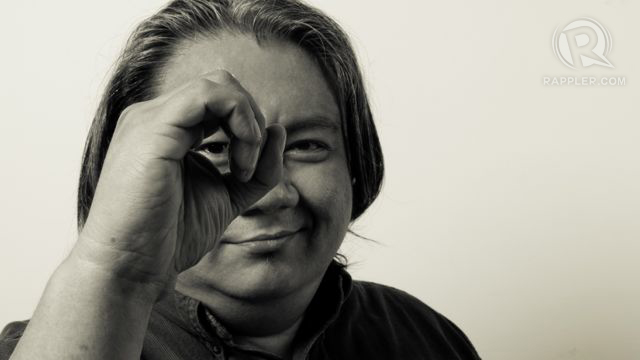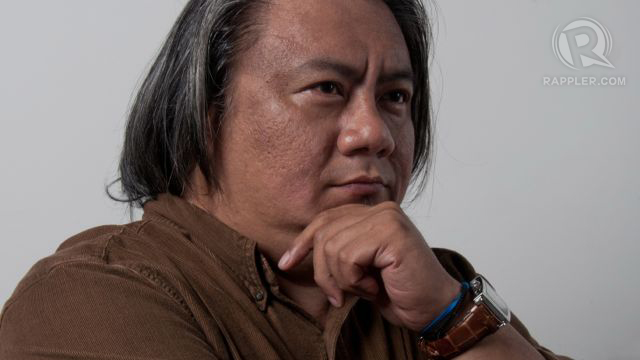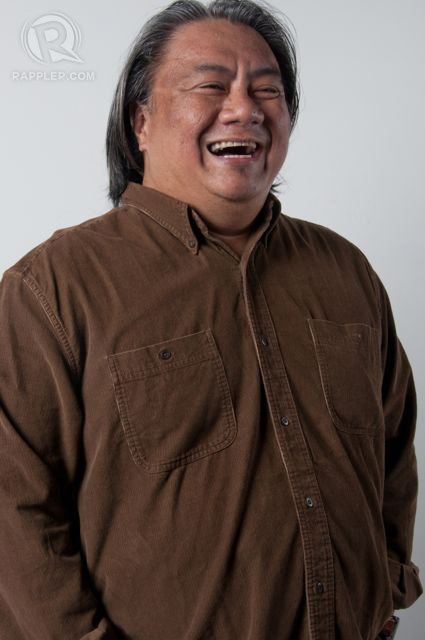SUMMARY
This is AI generated summarization, which may have errors. For context, always refer to the full article.


MANILA, Philippines – Watching Jim Libiran’s movies and listening to him talk with passion about the impact he hopes his work will bring to marginalized communities, you begin to wonder if “filmmaker” is an apt word for the man in front of you, considering his past lives as activist, award-winning writer and Xerex Xaviera alter-ego.
Perhaps “social auteur” would be a better term.
Libiran, whose feature films Tribu (2007) and Happyland (2011) have revealed unique angles about urban poor communities in his beloved Tondo, believes that working on a film gives one not just an opportunity to show real people in real conditions (think “poverty porn”). To him, films offer a concrete channel to provide people and communities with jobs, with exposure and with a real shot at a second life.
He shares, “The question I wanted to ask myself was: how can a film impact a community here and now? Not after the film is made, not years from now, but here and now?”
“Hire people to work on the project,” Libiran answers his own question. “Get them to work on the film.”
He describes his style as, “Filmmaking of, for and by the people.”
But Libiran doesn’t just employ community members to work on a film then packs up after that; he develops a deep relationship with the community and takes on “social prep” (social preparation) work even before filming starts.
Tribu, for instance, entailed getting members of rival gangs to actually get along and work together on the project without killing each other — the impact of which has lasted well beyond the film’s run. Meanwhile, for Happyland, even the families of the young footballers were given pep talks about the impact of the sport and how this can lead to scholarships and a better future for the boys.
Take note: this was well before the Philippine Azkals burst into the scene and put Philippine footballers on the global map.
“SROI”
For Libiran, then, the success of a film lies not just in being able to make enough money to bankroll a future project.
He also considers a project’s “SROI” — its “social return on investment.”
“Now, aside from just a financial ROI, my projects take on many more layers — we also have to consider the SROI. Nasaan ang happy mo? (Where does your happiness lie?) Is it in your TF (talent fee), in your performance or in the effects of your performance? How do you measure success? There are now many layers to that.”
He shares the case of how he was pleasantly surprised to discover that Tribu has been uploaded over YouTube in full, and how this has generated over 10,000 hits.
“Look, if it goes viral, you won’t make money, but you’ve got 10,000 hits — it’s much more than what you might expect from releasing it in the cinemas. You won’t expect 10,000 people to watch it in cinemas,” he says matter-of-factly.
Aside from its wide exposure — and aside from helping to promote peace within rival gangs in Tondo — Tribu has also opened up for one of its lead actors, Shielbert Manuel (a.k.a. “O.G. Sacred”), a world of opportunities outside Tondo. Now, the 26-year-old has gone on to perform his work for various audiences around the country, has trained other local rap artists in this unique genre and has even collaborated with hip-hop artists from Bogota, Beirut, Nairobi and Berlin for a cross-cultural project.
Happyland, meanwhile, came at a crucial point in Philippine history when the country was starting to rediscover football. The film featured appearances by footballers Phil Younghusband, China Cojuangco and the Homeless World Cup Team Philippines, adding to its off-screen appeal and driving the message home that football can be a vehicle for social change.
Now, Libiran reveals, “Some institutions are thinking of rolling it out as part of a nationwide football program.”
Here comes the Sun
Libiran’s next project is Araw, a commissioned film by Sun Life Financial, under the Sun Shorts program, which the company says is “a collection of digital films that shines the light on the value of love, family, friendship, foresight and a positive outlook on life.”
He was chosen to be one of 3 directors from Asia to create regional pieces, at a time when clouds were covering his personal horizon.
“They told me, ‘We want a film about real people.’ It’s good that I started this career without money, so I was forced to put up on the Internet (everything that I had). Once (the people at Sun Life) got my name, all my works came out. I really felt that the Universe was conspiring to help me.”
Libiran tapped deep into his artist roots for inspiration, and found the story of Jordan Mang-osan, an Igorot from Benguet, northern Philippines, who literally uses the sun (and a magnifying glass) to paint on wood panels.
What emerged was a captivating and truly awe-inspiring story about one man’s search for a dream and — about quite literally — finding his place under the sun.
“I used the Happyland experience and used real people for this film,” Libiran explains. “There’s something indigenous and magical about that method. Ever since I used that… I’d like to talk to you in terms of pesos and dollars, but let me just tell you that in that crazy, out-of-the-box method, there’s something magical about that.”
“You try to pull out what is not written in (people’s) résumé… (It’s) a project by real people done by a community,” he adds.
True to form, Araw became a community project and featured the collaboration of first-rate creatives (such as Nap Jamir for cinematography) and local artists from the famed Cordillera mountain range. It also gave birth to more inspired ideas that have left Libiran waxing poetic about the magic of the mountains.

“At least once (in their lives), every artist should pay homage to the north and pay respect to their roots,” Libiran says, paraphrasing Kidlat Tahimik, the enigmatic artist from the north.
It is clear from Jim Libiran’s filmmaking style that he knows his roots and knows where and to whom to pay homage.
As he pursues his North Star uncovering authenticity and promoting a heightened sense of social responsibility, it is our hope that more filmmakers will help define cinema not only in their own terms but also for the benefit of the larger community around them. – Rappler.com
Add a comment
How does this make you feel?
There are no comments yet. Add your comment to start the conversation.